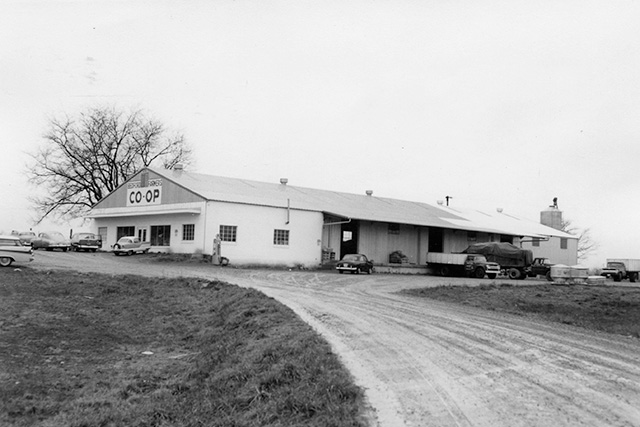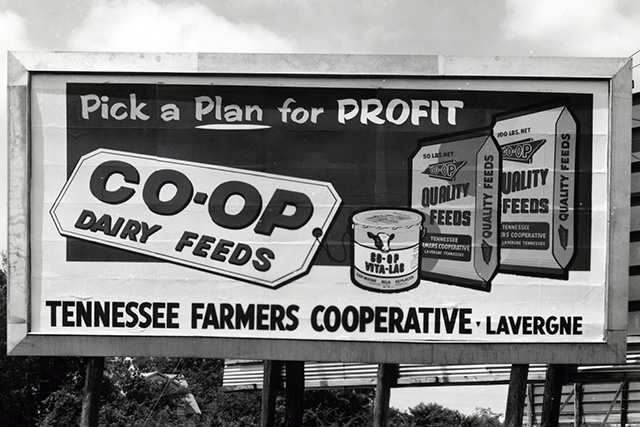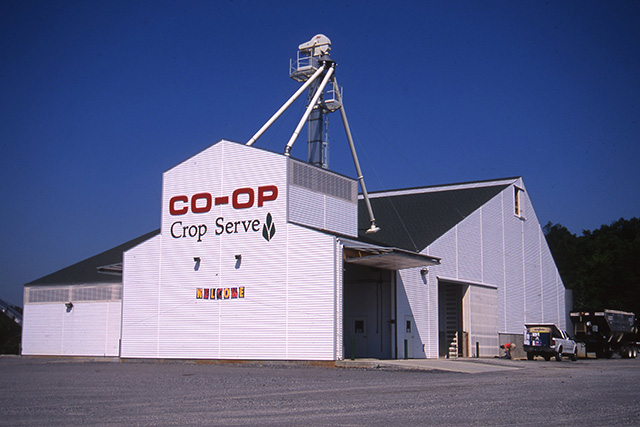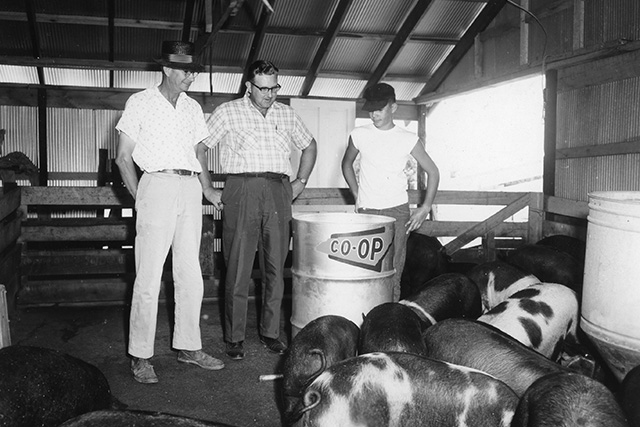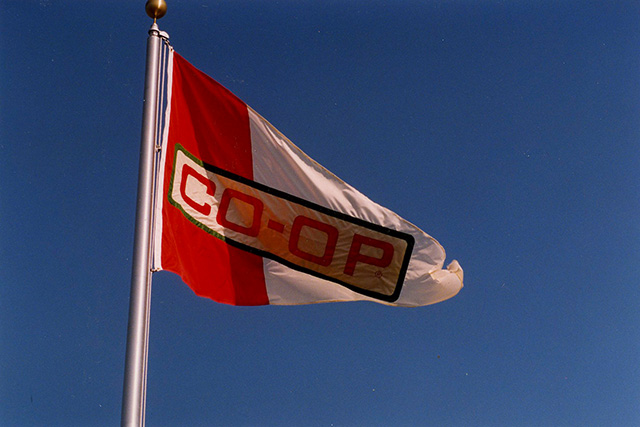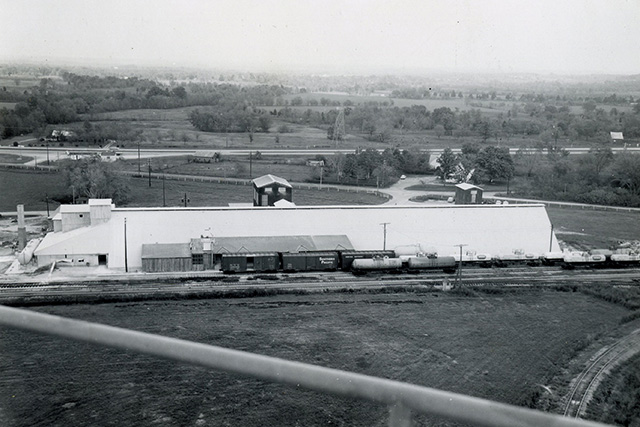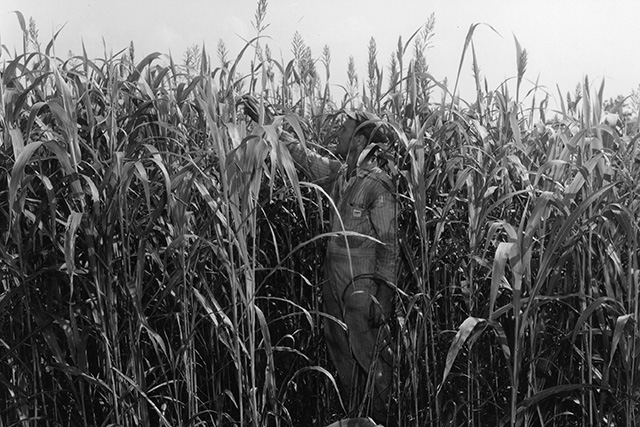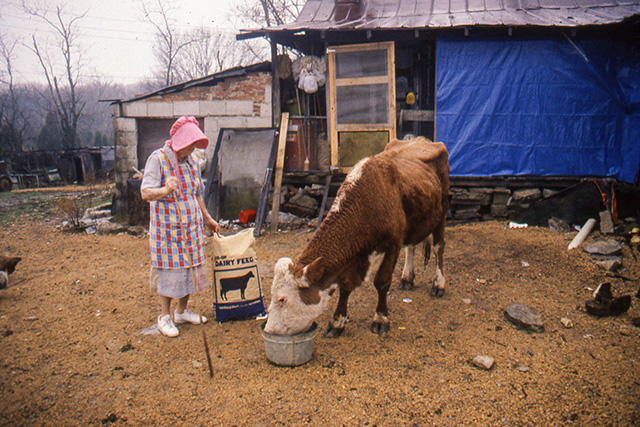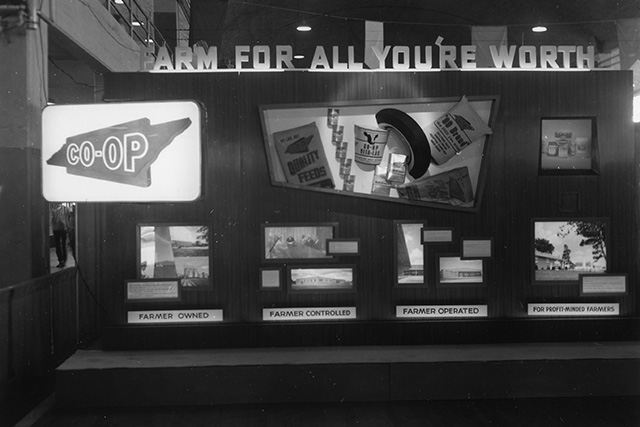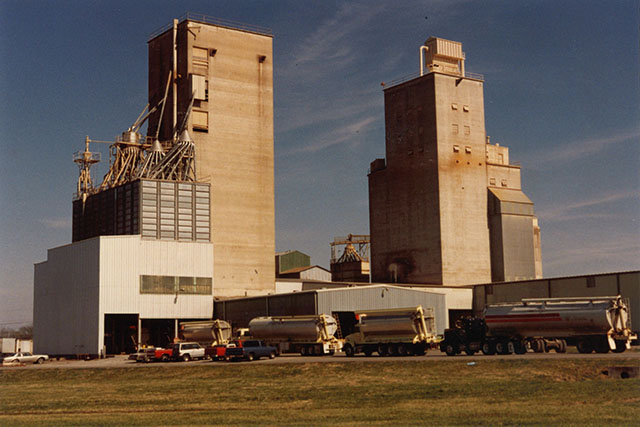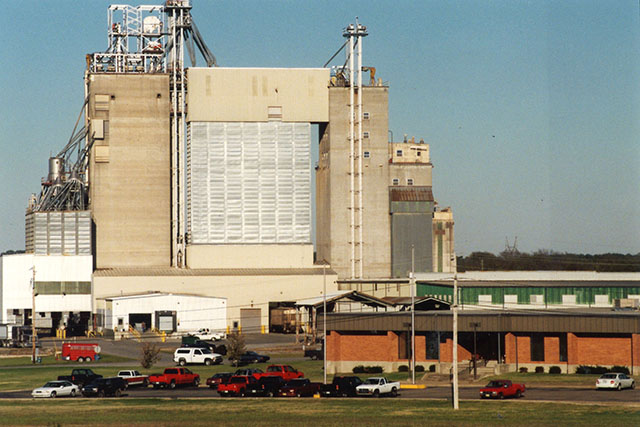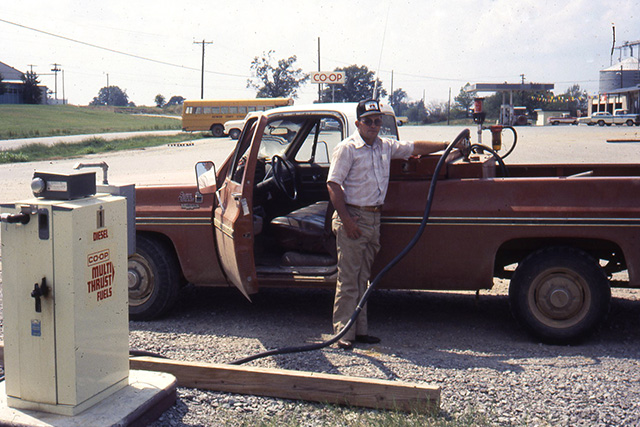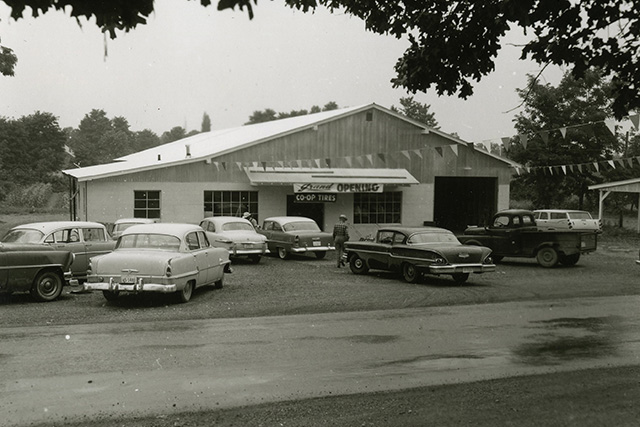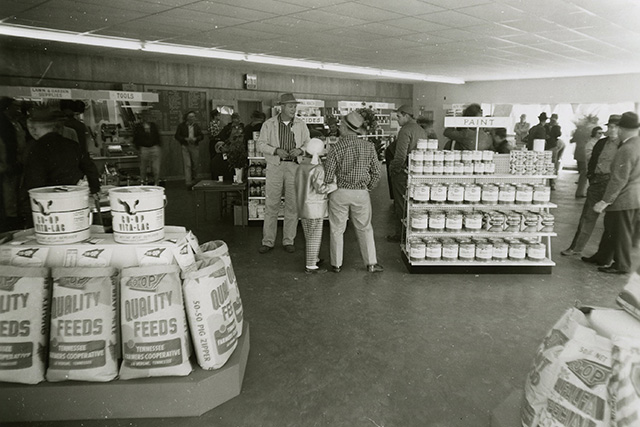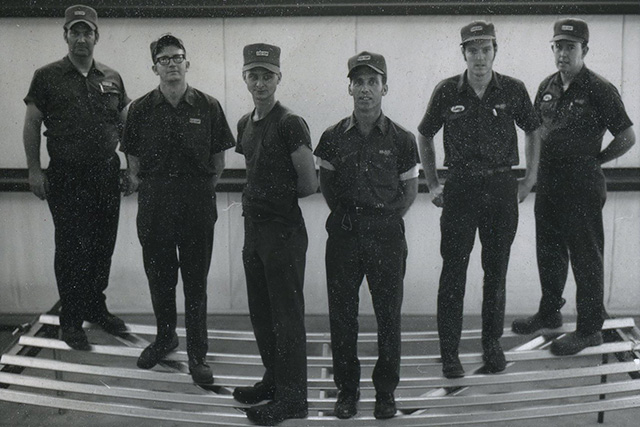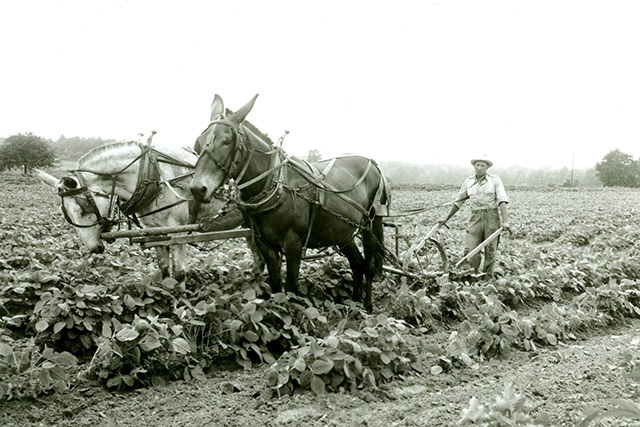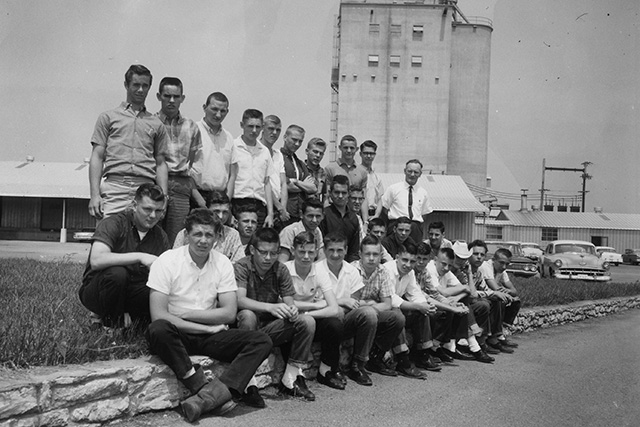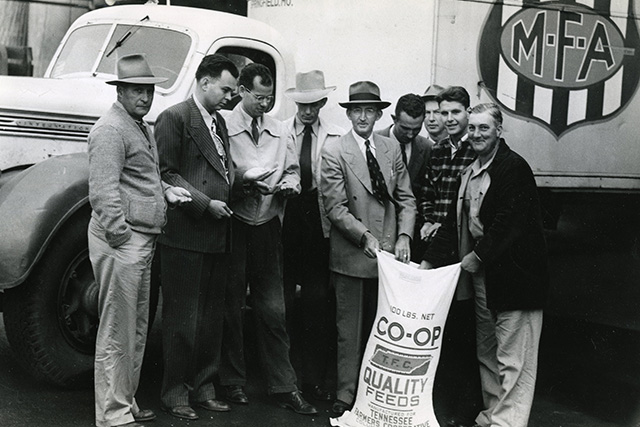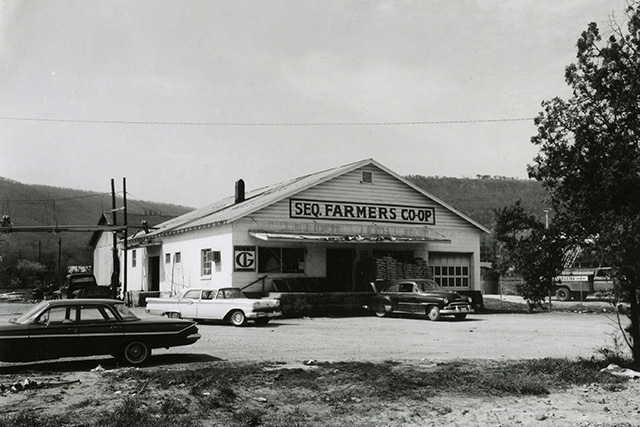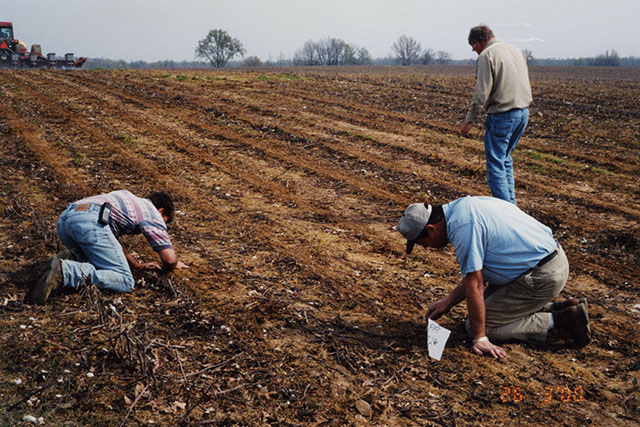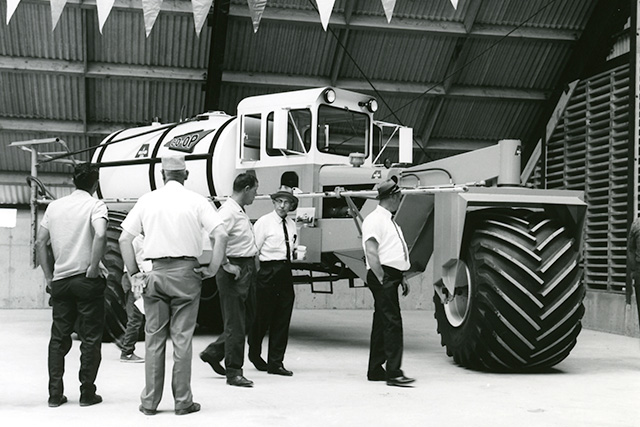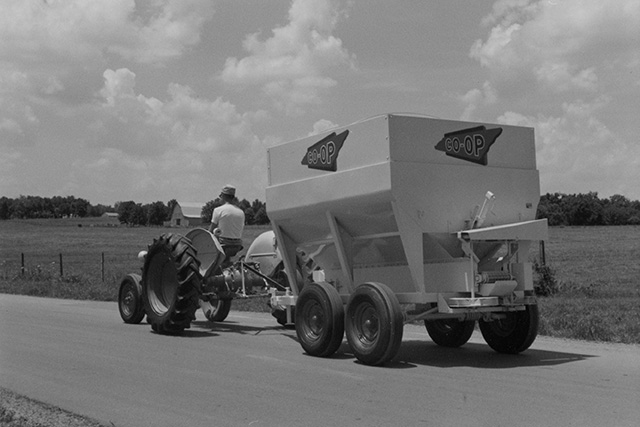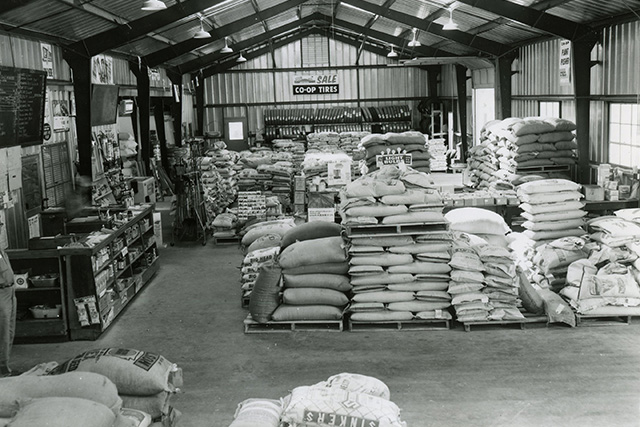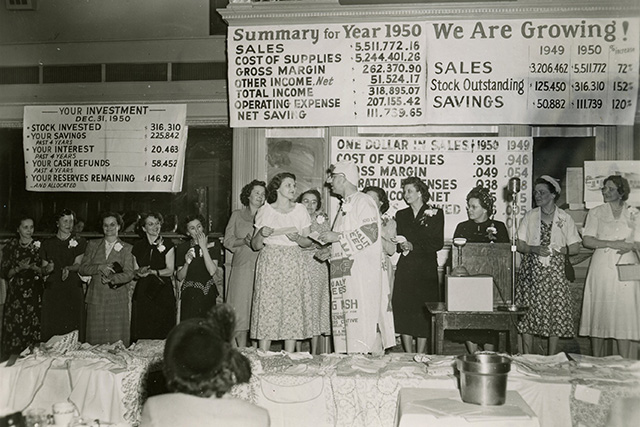80 Years of Growing with Our Communities
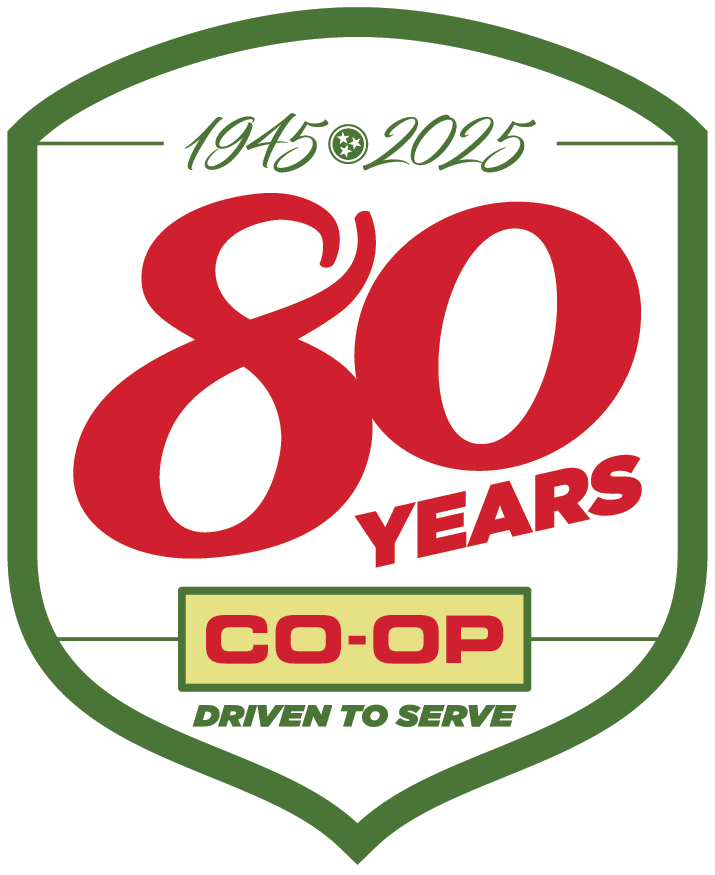
Join us as we celebrate Tennessee Farmers Cooperative’s 80-year legacy and the farmers who have built its success.
For eight decades, the Tennessee Farmers Cooperative has been more than a place to shop–it's been a community cornerstone, supporting local farmers and neighbors alike. Each Co-op is owned and operated by farmers from the area and guided by a board of directors made up of community members dedicated to strengthening the places they call home. By returning all profits to the local economy, we help ensure that the communities we serve continue to thrive for generations.
You don't have to be a member to visit–our Co-ops are here for everyone,
offering trusted products and expertise for farm, home, and more.


Tennessee Farmers Cooperative 80th Anniversary - Howard Moore
Join us as we celebrate Tennessee Farmers Cooperative’s 80-year legacy and the farmers who have built its success. Hear from Howard Moore of Southeastern Farmers Co-op as he shares how the Co-op has strengthened their farm and supported their future. Here’s to the next 80 years of growing together! 🚜🌱 ...
Tennessee Farmers Cooperative 80th Anniversary - Biltmore Estates
For 80 years, Tennessee Farmers Cooperative has supported farmers across the state, including the iconic Biltmore Estates. See how Biltmore relies on Smoky Mountain Farmers Co-op to power its legacy of sustainable agriculture and innovation. ...
Tennessee Farmers Cooperative 80th Anniversary - Joe Lampley
Join us as we honor Tennessee Farmers Cooperative’s legacy and the farmers who have made it thrive for the past 80 years. Hear from Joe Lampley of Lincoln Bedford Moore Farmers Co-op as he shares how the Co-op has supported their farm and their future. Here’s to 80 more years of growing together! 🚜 🌱 ...
Tennessee Farmers Cooperative 80th Anniversary - Louie and Cody Zimmerman
Celebrating 80 years of growth, dedication, and community spirit! Join us as we honor Tennessee Farmers Cooperative’s legacy — and the farmers who make it thrive. Hear from Louie and Cody Zimmerman of Greene Farmers Co-op as they share how the Co-op has supported their farm and their future. Here’s to 80 more years of growing together! 🚜🌱 ...
HOW WE SERVE LOCALLY

YOUR CO-OP IS OWNED AND OPERATED BY LOCAL FARMERS.

EACH CO-OP IS LED BY A BOARD OF DIRECTORS. THAT IS MADE UP OF LOCAL INDIVIDUALS WHO ARE COMMITTED TO STRENGTHENING AND SERVING THEIR COMMUNITIES.

ALL PROFITS ARE RETURNED AND INVESTED BACK INTO THE LOCAL ECONOMY WHICH THE CO-OP OPERATES.

YOU DON'T AVE TO BE A MEMBER TO SHOP AT YOUR LOCAL CO-OP. WE ARE HERE TO PROVIDE EVERYONE WITH PRODUCTS AND EXPERTISE FOR FARM, HOME, AND MORE!
OUR HISTORY
This history section is adapted from the 70th anniversary article originally published in the September 2015 issue of The Cooperator.
By early September 1945, the chaos of World War Two had ended, and peace had settled across the countryside. In Tennessee, servicemen were returning to their farms, homes, and families with renewed hope for prosperous productive lives. As they prepared for better times, farmers in Tennessee realized they needed more control over their own destiny. There was no guarantee farm supplies they needed would be available, and the quality of essentials such as feed, seed, and fertilizer was often questionable. Even before the war ended, producers across the state showed intense interest in forming their own farm supply business to provide a dependable, affordable source for these product inputs.
Out of this need, Tennessee farmers cooperative was born On September 27th 1945.
“When TFC was formed, there was a real need in the marketplace that was not being filled,” says Bart Krisle, TFC's chief executive officer. “Farmers needed quality products. They needed to know that those products would be there when they wanted them. They needed to know they were competitively priced, and they wanted to participate in the business. Organizing a farm supply cooperative gave them all of that and more.”
TFC's beginnings lie with the Tennessee Farm Bureau Federation ,which, at the time was advocating for the organization of local cooperatives to serve farmers in their communities. Leaders recognized, however, that a statewide effort was needed. In the fall of 1944, a seven-member committee of farmers, Farm Bureau directors, and University of Tennessee Extension specialists spent three weeks visiting cooperatives in other states. These visionary leaders ultimately recommended that Tennessee establish a federated cooperative system, one that is owned from the ground up by the farmers it serves.
"The founders recognized that it was important to have direct farmer input into the activities of the Co-op,'' says Charles Atkins of Maryville, former TFC vice president of member services who spent 44 years in the Co-op system before retiring in 2002. "I think that's been our strong suit from the start - farmers keeping their hand on the throttle and holding us, as trustees, accountable for their business."
In November 1944, Farm Bureau delegates authorized the formation of TFC with 33 charter member associations. On the afternoon oF Sept. 27, 1945, TFC officially came into existence, holding its first membership meeting and electing its first board of directors.
"I can only imagine how proud our former leaders would be if they could see the success of our Co-op today," said Lacy Upchurch, Tennessee Farm Bureau president. "Not only has the Co-op been beneficial for farmers in need of farm supplies, hut it's also benefited all of Tennessee agriculture in the united voice we share for this industry."
With TFC's birth, a whole new era in Tennessee agriculture began. Through the statewide Co-op system, individual farmers and their communities enjoy advantages such as greater purchasing power, an extensive distribution framework, state-of-the-art manufacturing facilities, reliable supply of quality products, and access to knowledgeable employees. Plus, as a farmer-owned business, the Co-op gives its members a chance to share in the profits through cooperative patronage.
That's what sets the TFC system apart in the increasingly competitive farm supply sector, says Jonathan Pierce, a longtime member of AgCentral Farmers Cooperative.
"I remember an old Co-op slogan, 'Owned and operated by the farmers of Tennessee,' and that's still true today," says Pierce, who raises beef cattle and swine on his Athens farm. "Simply put, my family has always dealt with the Co-op because they have what we need. And when the Co-op makes a profit, it's returned to the members. If the Co-op isn't financially successful, it's not going to be there for me. That's where my loyalty lies."
From its original 33 member Co-ops, the TFC system grew to a peak of 88 in 1961. Today, TFC has 54 member Co-ops, each a separate, independent business that is owned, operated, and directed by local farmers. Those cooperatives, in turn, own TFC, which is governed by a nine-member board of directors elected by delegates from the local Co-ops.
''We're member-owned, and we need to make sure those members know we are here to serve them in the best ·way possible,'' says one of the youngest Co-op managers in the system, Randy Stubblefield, who succeeded longtime Williamson Farmers Cooperative Manager Larry Dale in January 2014.
"My generation has always had a lot more options than those farmers who started the Co-op in the first place. Today's young producers have never had a problem getting the products they need. We have to leach them the Co-op story and keep the tradition alive." In 1949, the dock area at TFC's second Nashville location - 808 Lea Avenue - was busy as more and more supplies were shipped to member Co-ops. Distribution would soon move to Lavergne with the construction of new facilities In the early 1950s.
Core agricultural inputs, including fertilizer, seed, feed, crop protection, and farm hardware items, have always been Co-op staples, but members wanted to do more than just resell others' products - they wanted their own Co-op brand. That's why TFC made major investments in facilities throughout the 1950s, '60s. and '70s. building fertilizer plants and feed mills in the state's three grand divisions along with a seed-processing facility in Halls and a metal fabrication plant in LaVergne.
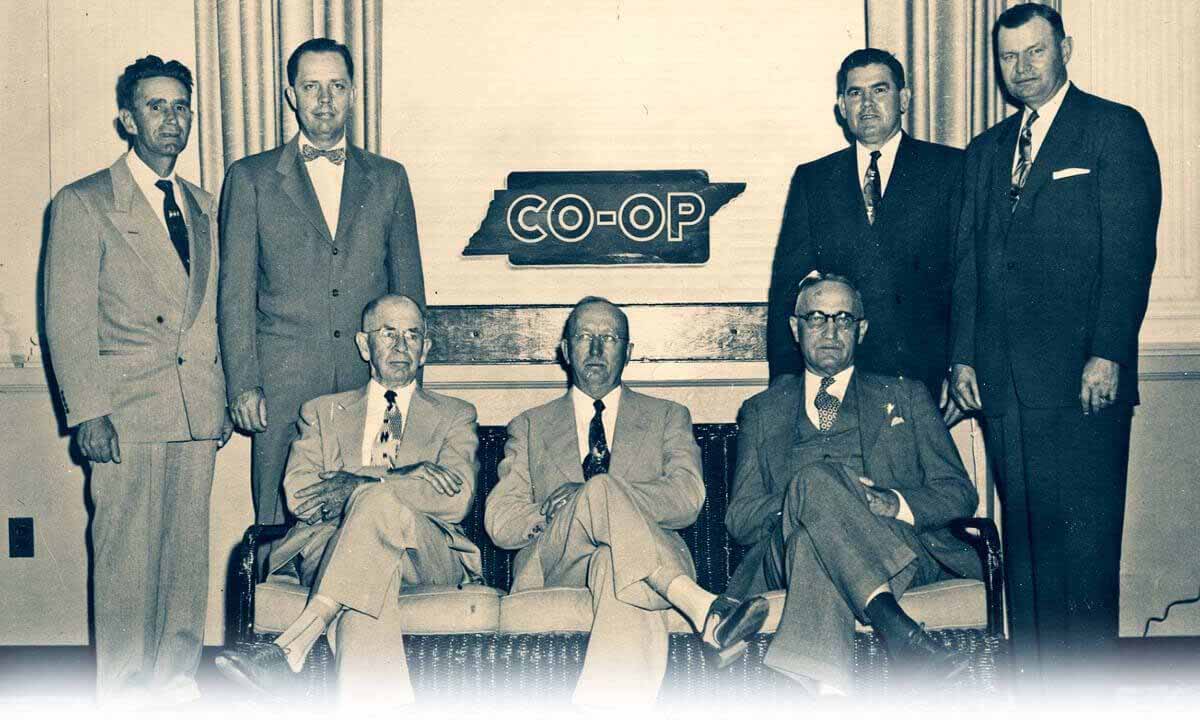
1945
TFC headquarters were originally established in the Farm Bureau building in Columbia bit moved to Nashville in 1948 for more space.
1950
TFC acquired 13.3 acres in LaVergne and built a fertilizer manufacturing plant, the first investment in fixed assets.
1952
A 20,000-square-foot seed warehouse in LaVergne was completed and a second fertilizer plant was built at what is known on as TFC Tenco complex near Rockford.
1953
A warehouse and field offices were built at Tenco.
1954
TFC offices moved from Nashville to the LaVergne warehouse.
"In the 1950s and '60s, the Co-op system was really growing and adding new products, but we realized we needed more control over their availability, quality, and price." says Atkins, who began his Co-op career in 1958 as an employee of Monroe Farmers Cooperative. "Those are the main reasons why we put in our own manufacturing facilities, and what we couldn't do on our own, we partnered with other organizations and formed interregional cooperatives. TFC was developed on integrity and trust, and the Co-op brand became something farmers knew they could rely on to be high quality and reasonably priced."
By the late 1960s, the Co-op system began to venture beyond basic farm supplies to expanded lines of products, such as home goods and lawn and garden items. During this era, Co-op stores designed for "one-stop shopping" were built at a rapid pace. Services were added, too, such as feed delivery, custom application of fertilizer and crop protectants, and field staff to provide on the-farm expertise.
In the early 1970s, TFC also began to focus more on the automotive, tire, and bulk petroleum business. Nine new car care centers were opened at member Co-ops in 1970 alone. In 1993, nonfan11 products were consolidated into a new department - Home, Lawn, Specialty- with increased focus on targeting the rural lifestyle market. A Retail Development Department was also established recently to emphasize effectively merchandising showrooms for walk-in customers.
These moves helped make the Co-op a place for all shoppers, not just farmers. Co-op system veteran David Ooten, who has managed Greene Farmers Cooperative for nearly 40 years, has seen this evolution firsthand.
"The biggest change l've seen is how the agricultural landscape has shifted," says Ooten, who began his career on the Co-op training program in 1972. "When I started at Greene County, there were 350 dairies here. Now there are less than 40. Seed, feed, and fertilizer were our mainstays back then, but now our Co-op has more suburbanized types of products for a broader customer base. I never thought I'd see that happen, but ag will continue to change, and the Co-op business has to change with it."
Technological advances also have impacted farmers and their Co-op system. For example, accounting became the first TFC department to be computerized in 1967. Flotation fertilizer spreading was tested in West Tennessee in 1968. Radial tires were introduced to Co-op customers in 1970. Batch processing at TFC's feed mills became computerized in 1981, and automated bagging and palletizing equipment was installed in the mid-2000s. By 1985, feed specialists began using computers to balance rations - a service they continue to offer today with the latest software available.
From the rise of no-till techniques and prescription fertilizer blends to genetically modified seed and precision agriculture, technology in agronomy has perhaps progressed more than any other type of farming in the past 70 years. And TFC has remained at the forefront through it all. For example, the Co-op system was among the first to offer Roundup Ready soybean seed in 1995, which revolutionized crop production. In the mid-l990s, TFC pioneered some of the first precision agriculture work in the Southeast with CPS-generated field maps and grid soil-sampling.
That trend continues today. TFC and member Co-ops working closely with their farmer owners to use sophisticated precision programs and equipment for seed placement, fertilization, and crop protection. Such services are needed to attract and retain new generations of farmers who may not have the same loyalty to the Co-op as their parents and grandparents, says Mid-south Farmers Cooperative member Drew Bailey of Alamo.
"In our area, Co-op has been able to evolve into areas like precision agriculture with qualified people who can help me get the most out of every acre," says Bailey, 30, who farms with his father, Steve, raising com, soybeans, wheat, and milo. ''To stay successful for another 70 years, Co-op needs to keep up with what's happening in technology and relay that to the farmer. Co-op is an institution I have a lot of confidence in. I'm part owner of the business, and it's important that we keep it going for generations to come.”
Whether it's staying abreast of technology or finding just the right manager for a local Co-op, education and training have always been hallmarks of the Co-op system. TFC's management training program was established in I 961 and has provided countless capable, dedicated leaders at member Co-ops and TFC. First headed by the late Tom Phillips, the training program is now directed by Paul Binkley and remains a crucial tool for recruiting and developing qualified personnel at all levels of the Co-op system.
When Deb Dunn, manager of White County Farmers Cooperative, began her TFC training in 1992, she was the only female in the program. Times have changed. These days, TFC's training program boasts a more balanced mix of male and female candidates - a trend Dunn is proud to see. "When I joined the training program, there were 21 guys and me," says Dunn, who has managed the Co-op since 2011. ''They really didn't know what to do with me, but I saw it as a challenge. The perception of the ag industry has changed, and there are a lot more cooperative opportunities for women today."
TFC's last two decades have been characterized by long-range plans and proactive moves to position the Co-op system for the future. Financially strong Co-ops have erased county lines and consolidated to gain efficiencies with facilities, equipment, and people. TFC has allowed associate member Co-ops in other states to join the system and launched joint ventures in agronomy and animal health to grow outside the traditional trade territory. Since 2006, TFC also has operated a retail subsidiary, Stockdale's: America's Rural Outfitter to capture more of the rural lifestyle market.
In recent years centralized efforts such as managing credit for members through TFC's Co-op Financial Solutions, handling bookkeeping work through the Regional Accounting Department, and partnering with EFC systems for information technology have vastly improved efficiencies and effectiveness.
Perhaps the most significant action to push TFC into the future, however, is the work of the "System Study Team," formed in 2014 to examine challenges and opportunities facing the cooperative. Led by TFC Zone II director Kenneth Nixon of Carthage, the team of farmers, TFC directors, Co-op managers, and TFC management recommended five strategies that are now being implemented to advance the system.
'We can't survive today operating like we did 25 years ago,'' says Nixon, the longest-tenured member of TFC's board with nearly 27 years of service. "Our competition doesn't do that, and we need to stay a step ahead. I want TFC to be around for my kids, grandkids, and everyone who's had faith in this system all these years.”
Even though seven decades have passed since determined Tennessee farmers banded together to form TFC, its record of unparalleled service to the state's agriculture industry and rural communities proves the concept of cooperation is still timeless.
"Work ethic. Passion for agriculture. Quality products and services. Competitive prices. Knowledgeable employees. Return on investment for members. Those are the keys to success for TFC’s first 70 years and going forward," Krisle says. "At TFC, we are stewards of the farmers' business. We can never lose sight of why we exist and who we serve. Our methods may change, but those principles will remain the same."
Click here to read more stories and features from The Cooperator.
1956
TFC added 127 acres of adjoining property in LaVergne for future expansion and purchased a fertilizer plant in Halls to serve the needs of West Tennessee farmers.
1958
The LaVergne Feed Mill opened, a significant milestone in one of TFC’s most important business sectors. Tenco Feed Mill followed in 1962 and Jackson in 1967. Bulk mills were added in LaVergne in 1970 and Tenco in 1973.
1959
TFC’s Halls Seed Plant was established in a hangar on the site of the old Dyersburg Army Air Base. A new, more modern facility was built in the mid-1970s and has been updated several times since then.
1960
TFC employees finally moved into offices all their own in a 19,000-square-foot building in LaVergne. It replaced one destroyed by fire a few months earlier before it was ever occupied. The building has been expanded twice – in 1967 and 1978.
1967
TFC opened its Poplar Croner Fertilizer Plant near Bells in West Tennessee.
1971
A metal fabrication plant was added in LaVergne to produce Co-op gates and other farm hardware products. TFC’s material handling facility was also built, renamed Ag Equipment USA in 2000. The company sells farm implements, spreaders, sprayers, precision ag items, and more.
Who do you think of when you think of Co-op?
First and foremost, it might be the farmer owners of each member Co-op. The system was originally created by and for these folks who depend on the Co-op for their livelihood. Co-op supplies the products and services they require to keep their business successful and the expertise they need to stay abreast of rapid changes in agriculture.
Perhaps it’s also the neighbor down the road who recently moved to the country from another state. You may have seen one of them at your local Co-op asking questions of the local staff. They might have even reached out to you as they shopped the aisles, after noting the dust on your boots or your well-worn Co-op cap as someone who might be able to share their helpful advice.
It could be the friendly young man on the dock who loaded your feed or fenceposts, or the bright young woman who helped wrap the Christmas presents you selected at the Co-op during the holiday season.
Or maybe it’s the crowd of locals you have seen sharing a cup of coffee while leisurely discussing the weather on a quiet rainy morning at the store.
Maybe it’s the kids at the local fair, sporting Co-op T-shirts along with their comfortable jeans as they get that calf or lamb ready for the show.
The Co-op community is made up of all these faces and more. That’s the beauty of our system. The face of Co-op reflects the communities we serve. Our strength is the relationships we cultivate and grow as our system shows how it’s Driven to Serve our farmers, our customers, and our communities.
Where the future leads us is anyone’s guess. But you can be assured Co-op will remain true to the values of cooperation and dedication to service that have driven the organization for 80 years.
Agriculture is always changing, evolving to meet the needs of new markets, and embracing new technology to provide our world with the food, fiber, and fuel our society needs. Co-op is committed to serving the folks who work hard to supply those needs and the neighbors in our rural communities.
Who do you think of when you think of Co-op?
First and foremost, it might be the farmer owners of each member Co-op. The system was originally created by and for these folks who depend on the Co-op for their livelihood. Co-op supplies the products and services they require to keep their business successful and the expertise they need to stay abreast of rapid changes in agriculture.
Perhaps it’s also the neighbor down the road who recently moved to the country from another state. You may have seen one of them at your local Co-op asking questions of the local staff. They might have even reached out to you as they shopped the aisles, after noting the dust on your boots or your well-worn Co-op cap as someone who might be able to share their helpful advice.
It could be the friendly young man on the dock who loaded your feed or fenceposts, or the bright young woman who helped wrap the Christmas presents you selected at the Co-op during the holiday season.
Or maybe it’s the crowd of locals you have seen sharing a cup of coffee while leisurely discussing the weather on a quiet rainy morning at the store.
Maybe it’s the kids at the local fair, sporting Co-op T-shirts along with their comfortable jeans as they get that calf or lamb ready for the show.
The Co-op community is made up of all these faces and more. That’s the beauty of our system. The face of Co-op reflects the communities we serve. Our strength is the relationships we cultivate and grow as our system shows how it’s Driven to Serve our farmers, our customers, and our communities.
Where the future leads us is anyone’s guess. But you can be assured Co-op will remain true to the values of cooperation and dedication to service that have driven the organization for 80 years.
Agriculture is always changing, evolving to meet the needs of new markets, and embracing new technology to provide our world with the food, fiber, and fuel our society needs. Co-op is committed to serving the folks who work hard to supply those needs and the neighbors in our rural communities.



